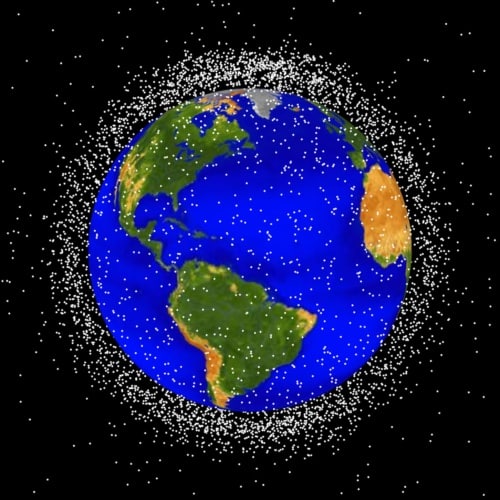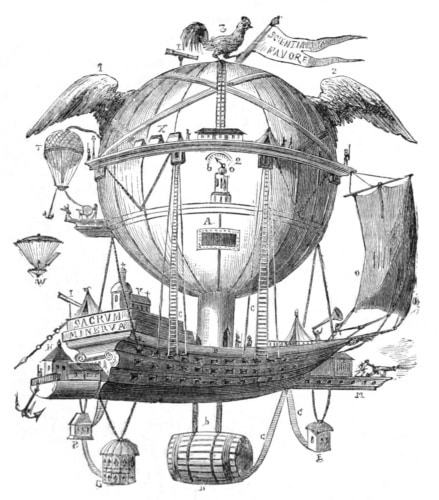And it’s time to take global education seriously
Last week just before I wrote this, some blazing nutcase racist in Portland, Oregon was harassing two Muslim women on a train. Three bystanders intervened and the racist, a poorly named man called Mr. Christian, allegedly stabbed two of them to death and injured the third.
Unfortunately, this insane and un-American behavior in the form of the harassment prior to the stabbings has become more commonplace since the election. A very small minority thinks it now has license to harass and harm people. It happened before in Kansas where a man shot an American citizen to death at a bar because the man, an engineer, was of Indian descent. Welcome to the worst examples of America 2017.
It’s especially concerning when, of all things, the Portland murders happened when President Trump was away on a trip that began in Saudi Arabia. The President’s actions there were more than friendly and respectful towards Muslim nations and leaders, as they should be, even speaking to a Moslem Nation summit there. So while the president is in Saudi Arabia building relationships a lunatic, ignorant of it , uses Trump campaign rhetoric as a 007 license to kill. As you’ll learn, ignorance is where we, the educational community, come in. We as educators can do something about this horrific, out of control hatred.
 By total coincidence , on Memorial Day Tuesday I did a show on Global Education (you can listen here) put together by my good friends at The Qatar Foundation International (QFI), a global education organization who brought one of the schools they work with on the show with them – a high school in, of all places, Portland OR – the Tuesday after the murders.
By total coincidence , on Memorial Day Tuesday I did a show on Global Education (you can listen here) put together by my good friends at The Qatar Foundation International (QFI), a global education organization who brought one of the schools they work with on the show with them – a high school in, of all places, Portland OR – the Tuesday after the murders.
Lincoln High School Principal Peyton Chapman (that’s Ms. Peyton Chapman, FYI) was my guest along with the one and only Maggie Salem, my buddy from QFI, and Steve Hargadon who runs a Global Education Online Conference in November. Peyton (and I am sure the vast, vast, VAST majority of Portland citizens) was appalled by the murders, but she is one person who is constantly trying to do something about it. She’s a leader, working her school and its teachers every day of the school year in Global Ed to create cultural and religious understanding and knowledge for her school population. She does it using QFI and International Baccalaureate programs, because she knows that’s the world her kids are going into. The school’s work is making a difference, as her school community recognizes that it’s indeed a small world, i.e., that Global Ed is a lot more than connecting on line with a school in Kuwait or China or wherever and saying hello.
It’s a deep, challenging and critical understanding that this little blue marble we’re stuck on gets littler every day… and if our kids want to succeed, they need to understand that we’re all in this together and opportunity abounds worldwide.
And, unlike Mr. Christian and his ilk, today’s students have to learn to respect every other culture and the people in them because, quite simply, those other cultures aren’t going away and they are all very close to us.
How close? Here’s how close: I’m going to Qatar for a world conference on Education in November, a 13-hour trip from Boston in a very comfortable Qatar Airlines jet.
 Having said that, I know someone who would be very jealous of me. No, not my wife, but rather Phileas Fogg of “Around the World in 80 Days” fame. If Phileas lived where I live, he’d be taking the train to New York, an ocean liner to France, a train across Europe, a boat to Egypt and down the Suez Canal and a camel the rest of the way… and nowhere in his entire 3-4 week trip will he or the camel even get a bag of peanuts or pretzels, his choice in case either he or the camel has a peanut allergy! It’s a small world. Thirteen comfortable hours versus three weeks… our education system was developed when Phileas, had he ever been alive, was alive. And we’re still operating under the same basic system. Gimme a break! Give the camel a break too!
Having said that, I know someone who would be very jealous of me. No, not my wife, but rather Phileas Fogg of “Around the World in 80 Days” fame. If Phileas lived where I live, he’d be taking the train to New York, an ocean liner to France, a train across Europe, a boat to Egypt and down the Suez Canal and a camel the rest of the way… and nowhere in his entire 3-4 week trip will he or the camel even get a bag of peanuts or pretzels, his choice in case either he or the camel has a peanut allergy! It’s a small world. Thirteen comfortable hours versus three weeks… our education system was developed when Phileas, had he ever been alive, was alive. And we’re still operating under the same basic system. Gimme a break! Give the camel a break too!
Open your memory banks and remember why public education was created here in the US. Yes, they wanted an intelligent electorate to make our nascent democracy work, but they did that by creating a structure that also popped the populace into the American Industrial system, wherein you’d graduate and get a factory job at US Steel or GM or GE. Gee, it worked until China outran US Steel and the Toyota, rather than the Chevy plant, opened in Kentucky and computers replaced people. The system was geared to the world that those old time kids were going to enter. But there have been some minor changes, AHEM, since then and our old system really needs to 100 percent accommodate those changes… really accommodate them, as opposed to lip service. Not just in the classroom, but throughout the K-12 whole system!
It is, to coin a redundant phrase, a global world and our President just proved it with his recent trip. President Trump, because he’s done it has known that for a long time, i.e., that we work with The Arab World, The Asian World, The African World and everybody else. President Trump might say “America First,” but it’s our job to make sure every child today understands that it’s America First Globally because he or she is going to be on a worldwide stage of opportunity.
The old system has to be tossed out because it is old. Peyton makes her curriculum interdisciplinary, tears down the walls, and her faculty engages all the students in global challenges in every subject. That needs to be how we approach K-12. The other guest on the show, Steve Hargadon, runs a Global Education Online Conference and 25,000 American educators join in. It’s a number which Steve calls “a drop in the bucket.” The drop in the bucket has to be a flow – it’s never too late to begin for real – to change not just the classroom, but the schools and the system, and prepare our kids today for a global future that’s already here, a future where cultures work together and respect each other. The good old “World Cultures” course was never good, but it is old. Toss it and teach the kids the relevant reality of today in K-12. Here’s final well-researched proof that we need to do it, the most listened to song in the world. Mr. Christian unfortunately somehow missed it.
Subscribe to edCircuit to stay up to date on all of our shows, podcasts, news, and thought leadership articles.





